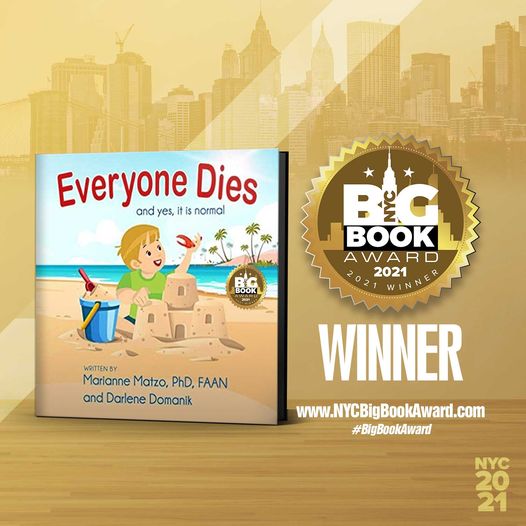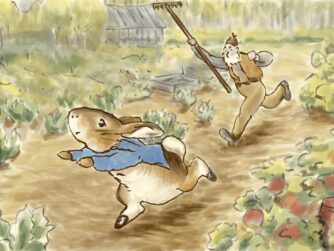We explore the health disparities and what you can do to help for those with a learning disability, especially related to palliative and end of life care.
This week we are exploring the topic of having and terminal illness and how to get the information needed if you have a learning disability. Having a learning disability, or even several disabilities, isn’t related to intelligence. It just means that the person’s brain works differently from others. Be sure to see the resource links below.
People with intellectual and learning disabilities are now living significantly longer than in previous generations. They not only face the same age-related health and social care needs as anyone, but they also have specific challenges due to their learning disability. They may also be left out of important activities such as a loved one’s funeral. Learn more about the challenges and how to support those with intellectual/learning disabilities, especially surrounding death and the end of life.
In this Episode:
- 02:13 – Recipe of the Week: Cheesecake Fruit Salad
- 04:26 – Dying Stars
- 12:56 – Learning Disability and End of Life
- 28:20 – “Is it ‘selfish’ to ask dying husband to hold on a little longer?” – Advice from Washington Post
We talk about several resources, with some fantastic ones below. Australia has created videos with great demonstrations of how to have these interactions and difficult conversations. Their Talking End of Life …with people with intellectual disability (TEL) is a toolkit to support conversations to explain death. Many people with a disability have limited understanding of death, and few have prepared for it. By having conversations, their wishes can be known.
References:
- NHS England » Delivering high quality end of life care for people who have a learning disability
- 31 Learning Disabilities Statistics, Prevalence & Facts (supportivecareaba.com)
- Palliative care for people with learning disabilities (mariecurie.org.uk)
Resources:
- PCPLD Network – Palliative Care of People with Learning Disabilities Network
- “Talking End of Life” (TEL) website videos – For talking to people with learning disabilities
- MAC16345What-can-help-you-feel-better-when-someone-dies (macmillan.org.uk)
- Helping People With Intellectual Disabilities Cope With Loss (vumc.org)
- Hollins, S., Blackman, N., Dowling, S., Brighton, C. (2003). When Somebody Dies. London: Books Beyond Words.
- Hollins, S. and Sireling, L., Webb, B. (2004). When Mum Died. (Third Edition) London: Books Beyond Words.
- Beyond Words (booksbeyondwords.co.uk)
- Managing Grief Better: People With Intellectual Disabilities | Intellectual Disability and Health
Advice Column: “Is it ‘selfish’ to ask dying husband to hold on a little longer?”

This week we feature a question is from Carolyn Hax’s daily advice column in The Washington Post:
Hi, Carolyn: My husband and partner of 37 years, age 65, has been courageously battling a neurological disease for the past 10 years. He is three years past the average life expectancy for this disease, and life is getting tough for him.
This week, he decided he no longer wants to live and asked me to set up an appointment with his doctor to talk about his death, which I did. The doctor is all for not prolonging suffering and will help him end his life.
Am I selfish to want him to, and ask him to, fight for more time together? More kisses, more sunsets, more waking up together? I think he could have another year or more, but it would be super difficult for both of us.
He wants to do what’s best for me and says he doesn’t want to be a burden. Should I respect his wishes and support his decision? Would I just be postponing the inevitable at his expense? What is the right thing to do?
What’s the response? Tune into the podcast to listen!
Recipe of the Week
If you’re trying to think of something creative for upcoming fall dinners, this week we feature cheesecake fruit salad from Southern Living. For a way to get your fruit and cheesecake too, head to the site to get the recipe! We’re wondering what it would be like as a fruit pizza?
:max_bytes(150000):strip_icc():format(webp)/Southern-Living-Cheesecake_Fruit_Salad_005-a8903364d8424303b6235a4e6c7a6572.jpg)


https://blog.feedspot.com/palliative_care_podcasts/
Everyone Dies: and yes, it is normal!
Everyone Dies (and yes, it is normal) is a story about a young boy named Jax who finds something special on the beach where he and his grandpa Pops are enjoying a wonderful day. Pops helps Jax understand that death is a normal part of life. This book provides an age appropriate, non-scary, comfortable way to introduce the important topic of mortality to a preschool child. Its simple explanation will last a lifetime. Autographed copies for sale at: www.everyonediesthebook.com. Also available at Amazon
Mourning Jewelry

We offer a way to memorialize your loved one or treasured pet with a piece of handmade jewelry. When people comment on it and the wearer can say for example “I received this when my mother died” which opens the conversation about this loss. All our jewelry is made with semi-precious stones and beads, vintage beads, and pearls. You can choose between earrings or bracelets and the color family. Learn More









